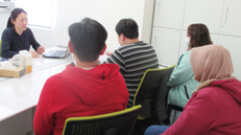The Activities of the Japan Foundation
Awards
The Japan Foundation confers the Japan Foundation Awards and the Japan Foundation Prizes for Global Citizenship to individuals and groups who have contributed to deepening mutual understanding between Japan and the world through international cultural exchange and to groups who engage in outstanding community-based international cultural exchange, respectively, in order to nurture further understanding of and participation in international cultural exchanges.
The Japan Foundation Awards
The Japan Foundation awards are given to individuals and groups who have made and are expected to further make particularly significant contributions to the promotion of international mutual understanding and friendship through academic, artistic or other cultural activities. For the 48th edition of the awards in FY2021, we selected four recipients after the screening of 101 nominations, including those of the 2020 Awards which was canceled due to the COVID-19 pandemic.
Recipients and Reasons for the Awards
KOREEDA Hirokazu (Film Director) / Japan
While remaining connected to ordinary people and gently observing the subtleties of their lives, KOREEDA Hirokazu constantly questions the reality of modern Japanese society by depicting neglected children or a surrogate family that makes a living through stealing (Nobody Knows, Shoplifters). These films are full of deep insights into humanity and have received high praise across the globe. Through films such as The Truth (2019), a Japanese-French collaborative work, and Broker, which brought Japan and South Korea together, he has contributed in a major way to promoting mutual understanding internationally.
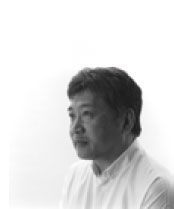
(c)FUJII Tamotsu
MIYATA Mayumi (Shō (Japanese wind instrument) Performer) / Japan
MIYATA Mayumi has performed gagaku (ancient Japanese court music) at the National Theatre of Japan since 1979 and showcased the potential of traditional gagaku instruments through world premieres of new works by masters of modern music. She has communicated the appeal of the shō, a traditional gagaku wind instrument, by performing with orchestras such as the New York Philharmonic and the Deutsches Symphonie-Orchester Berlin and at famous music festivals around the world. She has also performed an opera by German composer Helmut Lachenmann and performed with Czech contemporary dance choreographer Jiří Kylián. Through the shō, she has helped to foster international mutual understanding for many years.
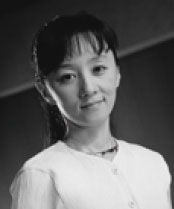
Faculty of Japanese Language and Culture, University of Languages and International Studies - Vietnam National University, Hanoi (VNU) / Faculty of Japanese, Foreign Trade University /Department of Japanese Studies, Hanoi University / Vietnam
The popularization of the Japanese language in Vietnam is remarkable. Behind this development are economic and cultural exchanges between Japan and Vietnam supported by the history of Japanese-language education offered by three institutions that have raised excellent human resources, namely, the University of Languages and International Studies – Vietnam National University, Hanoi, Foreign Trade University, and Hanoi University (former College of Foreign Languages). The three universities cooperated to establish the Association of Japanese Linguistics and Education in Vietnam in 2017, the first national organization of its kind in Vietnam, which is currently undertaking various activities.



Irmela Hijiya-Kirschnereit (Professor, Free University of Berlin) / Germany
Hijiya-Kirschnereit is Europe's leading researcher in Japanese literature, literary critic and translator. She has made outstanding achievements in analyzing and interpreting modern Japanese literature such as MISHIMA Yukio's works and studying unique Japanese literary forms such as autobiographical novels and diaries, greatly contributing to the advancement of the understanding of Japanese culture and society. She has been a professor at the Free University of Berlin for many years where she focuses on training the next generation. She also builds international academic networks and promotes mutual understanding between Japan and Europe, and her efforts have been praised in various circles.
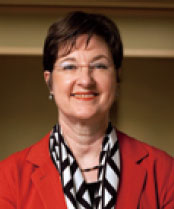
(c)Pablo Castagnola
The Japan Foundation Prizes for Global Citizenship
The Japan Foundation Prizes for Global Citizenship are awarded to organizations in Japan that engage in original, forward-thinking initiatives for deepening ties between Japan and other countries, facilitating the exchange of knowledge, ideas and information and encouraging collaborative thinking. In FY2021, the 37th edition of the awards, three organizations were selected as recipients. The award ceremony was held online as it had been in FY2020.
Recipients and Reasons for the Prizes
Friends of El Sistema Japan
El Sistema is an educational program from Venezuela that seeks to address social issues such as poverty through orchestra activities. El Sistema Japan was established in Soma City in Fukushima Prefecture, which was severely damaged by The Great East Japan Earthquake, to give the children there hope for living. Their activities cover all of Japan and they also hold joint concerts with children overseas. They endeavor to help children become more confident through connections with the outside world, while also helping to invigorate local communities.
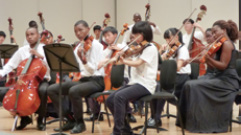
Mundo de Alegria
Hamamatsu City in Shizuoka Prefecture is home to a large number of second- and third-generation people of Japanese descent from South America, who contribute to the corporations in the area. However their children faced many difficulties in education due to the language barrier. Mundo de Alegria is a school established to provide education for children from kindergarten to high school both in Japanese and in the languages of their country of origin. It also provides them with advice on higher education and job-seeking opportunities to help them decide their futures. It works towards the development of a diverse society by helping to carve out a future for the children.
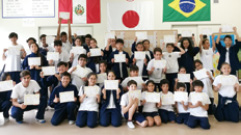
Door to Asylum Nagoya
Founded in 2012, Door to Asylum Nagoya (DAN) is the only NPO that supports refugees living in the Tokai region. Lawyers and local supporters provide support for refugees who need long-term assistance, offering help with the filing of asylum applications and support for living during the application period. In addition to assistance with legal procedures, they also provide support in a wide range of areas such as distributing provisions through food banks and helping refugees settle in local communities after refugee status is granted. In recent years, they have also focused on raising awareness of refugee issues, which is facilitating an increase in local efforts to support refugees through the collaboration of more diverse players.
